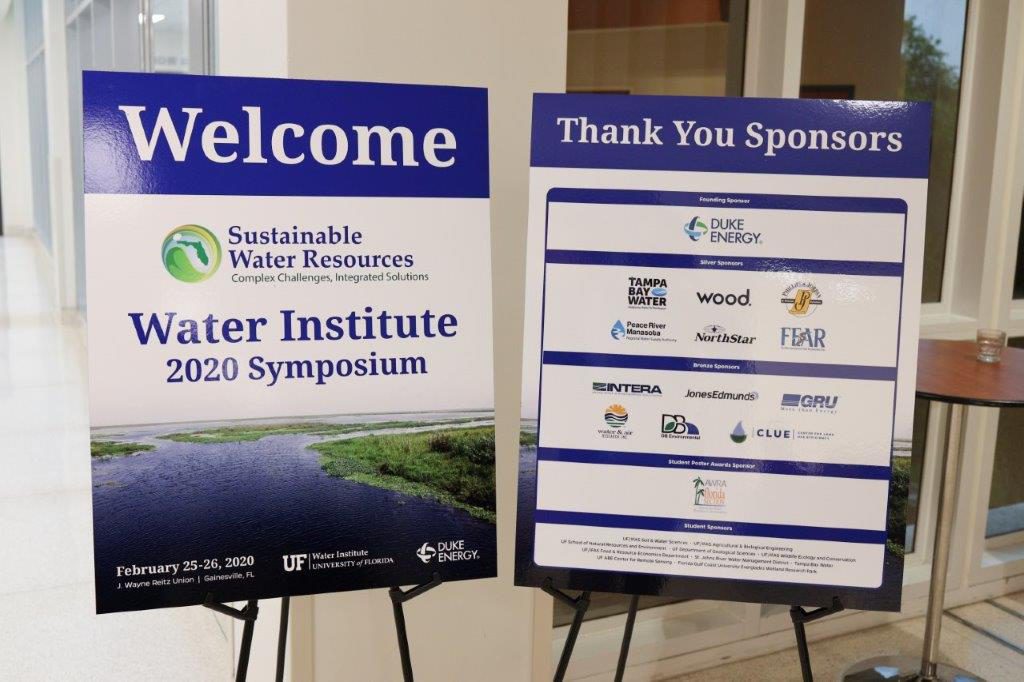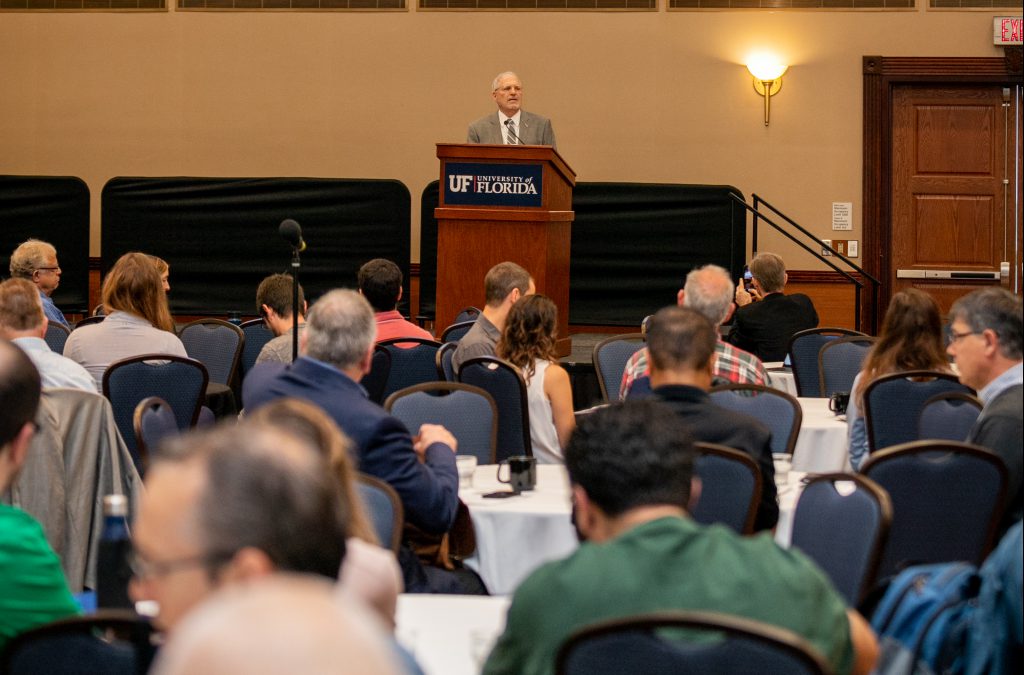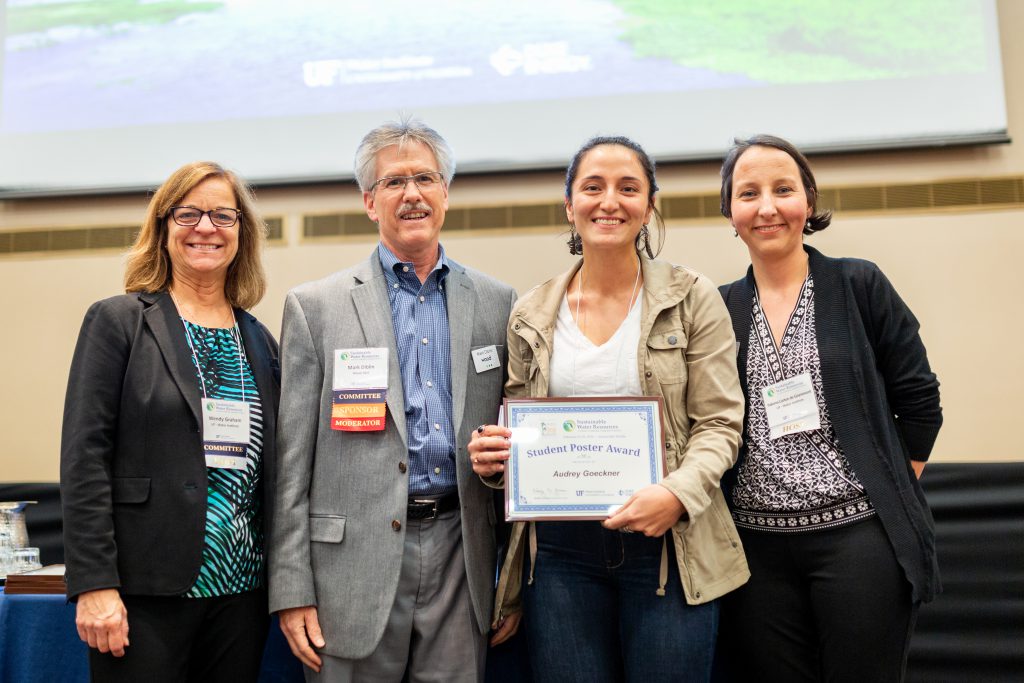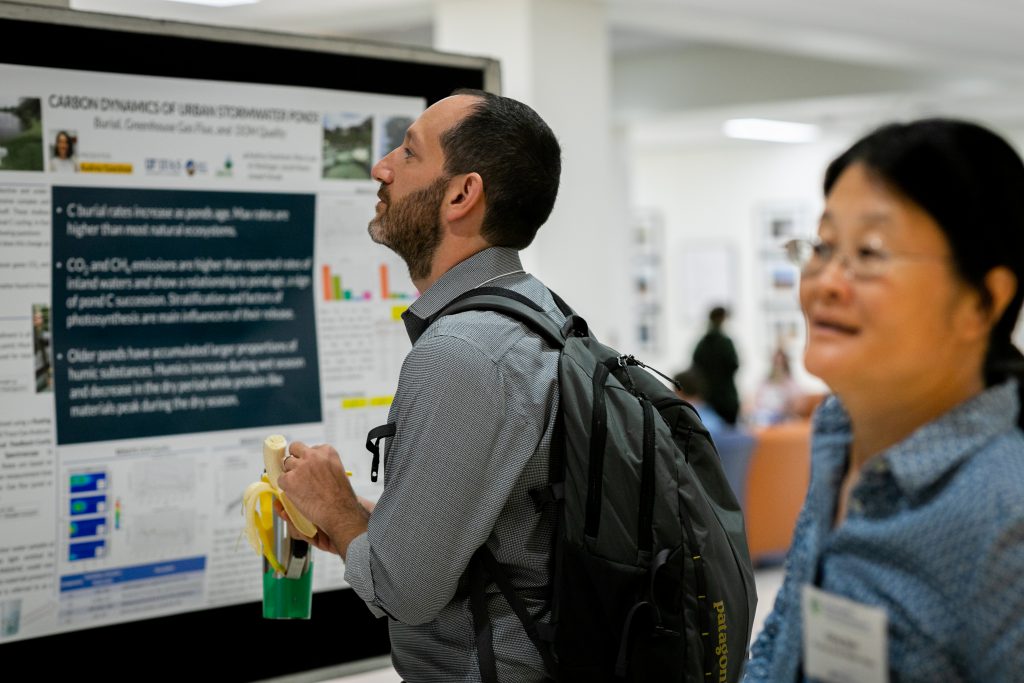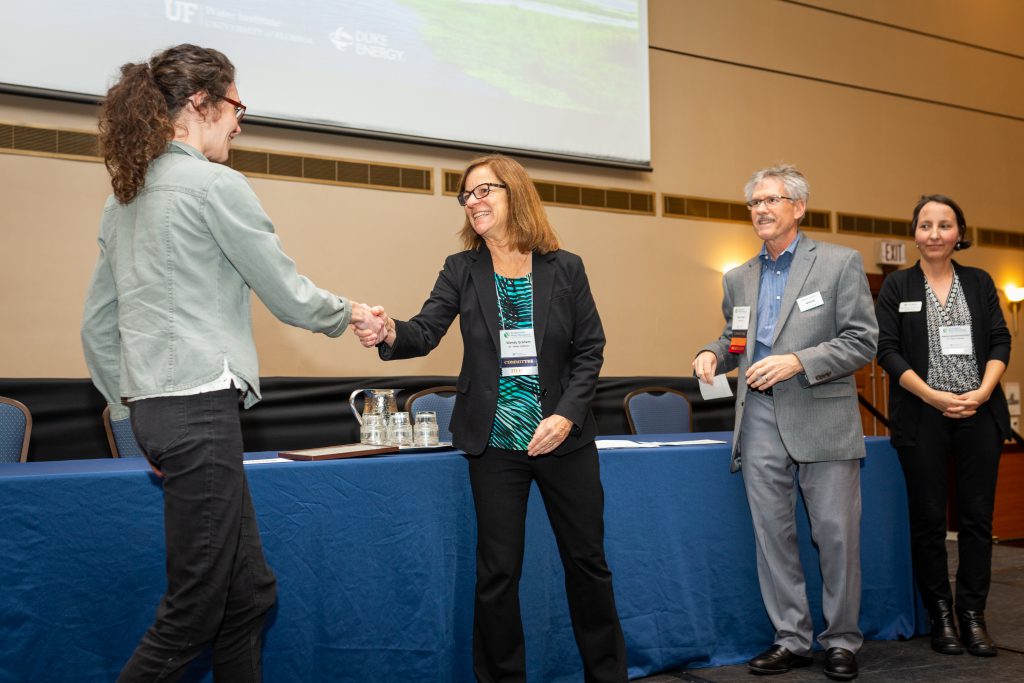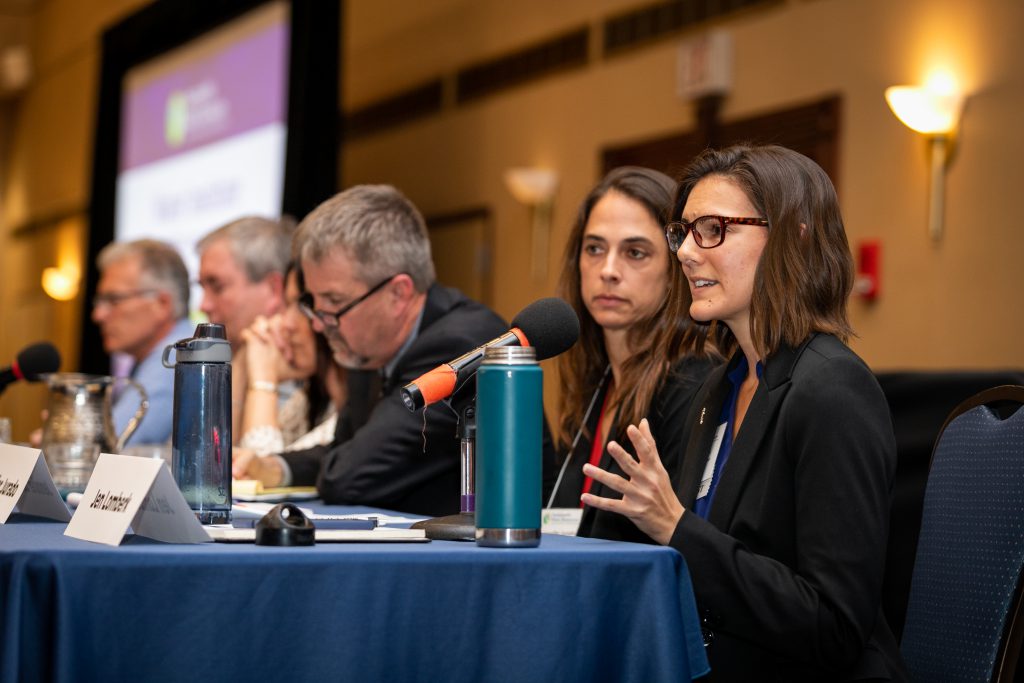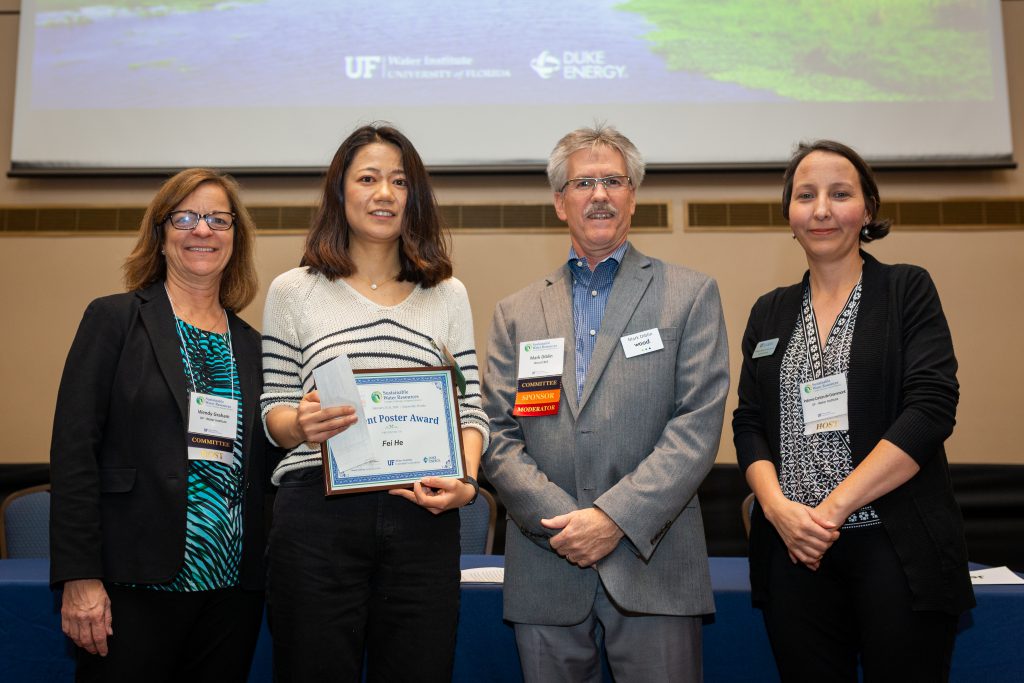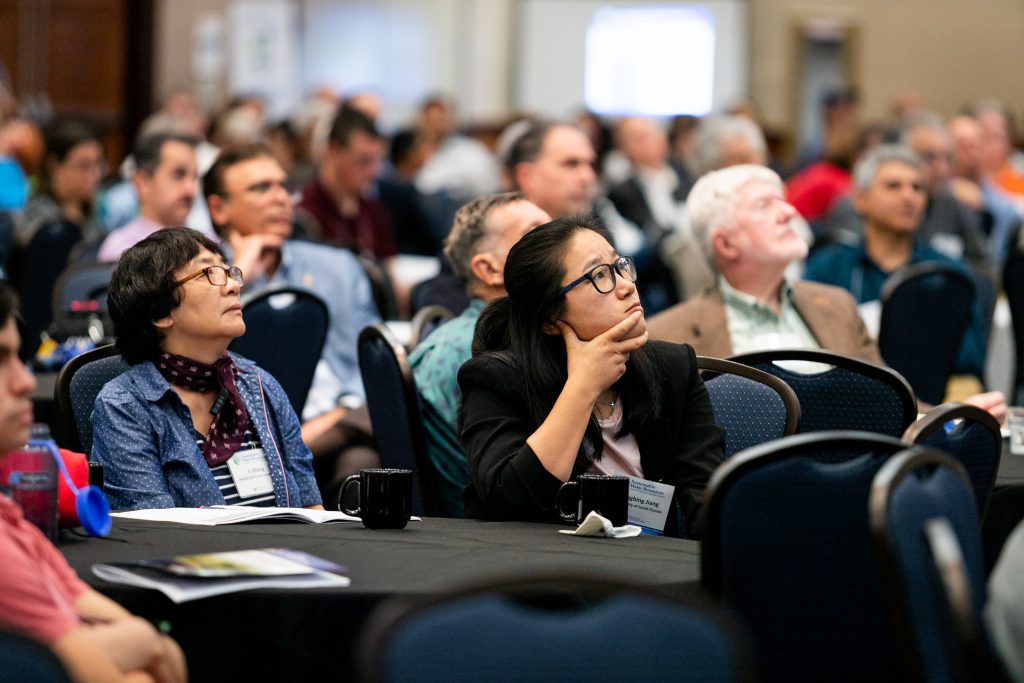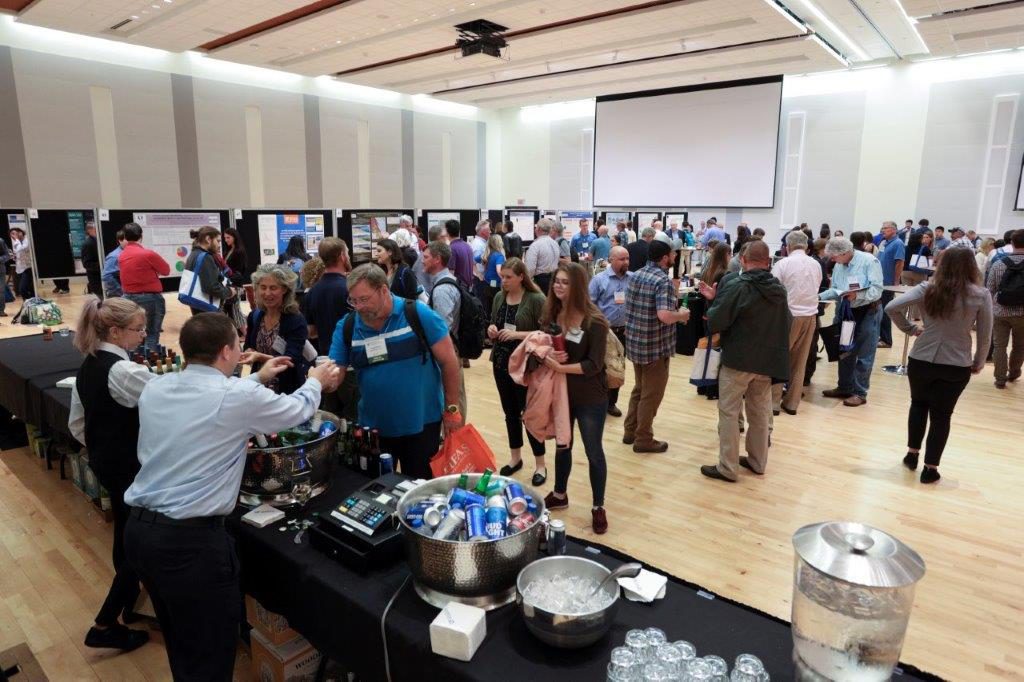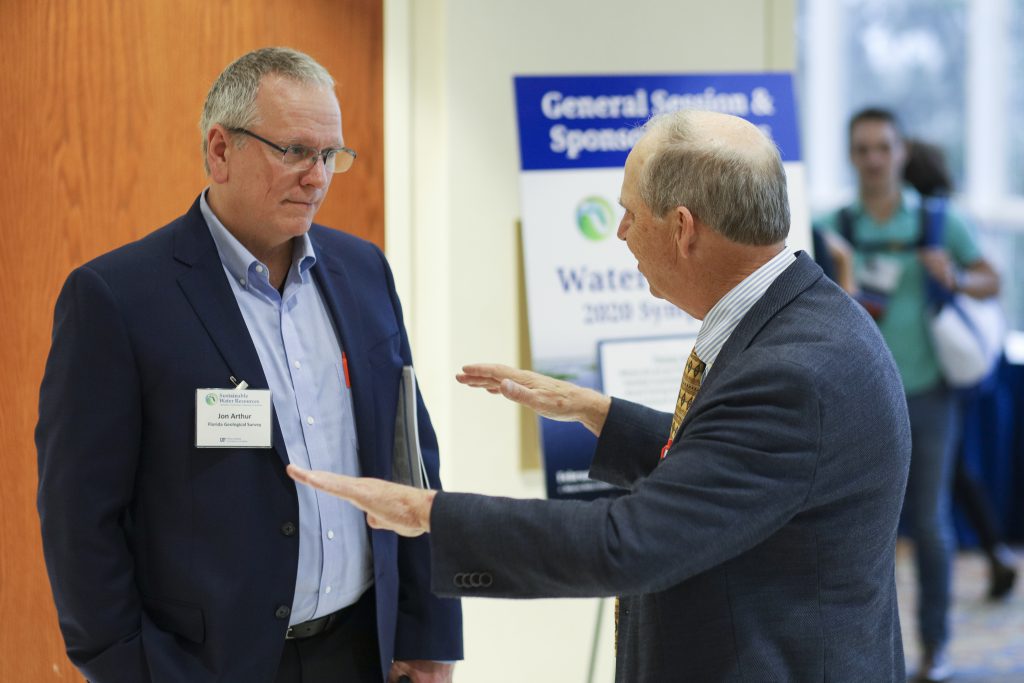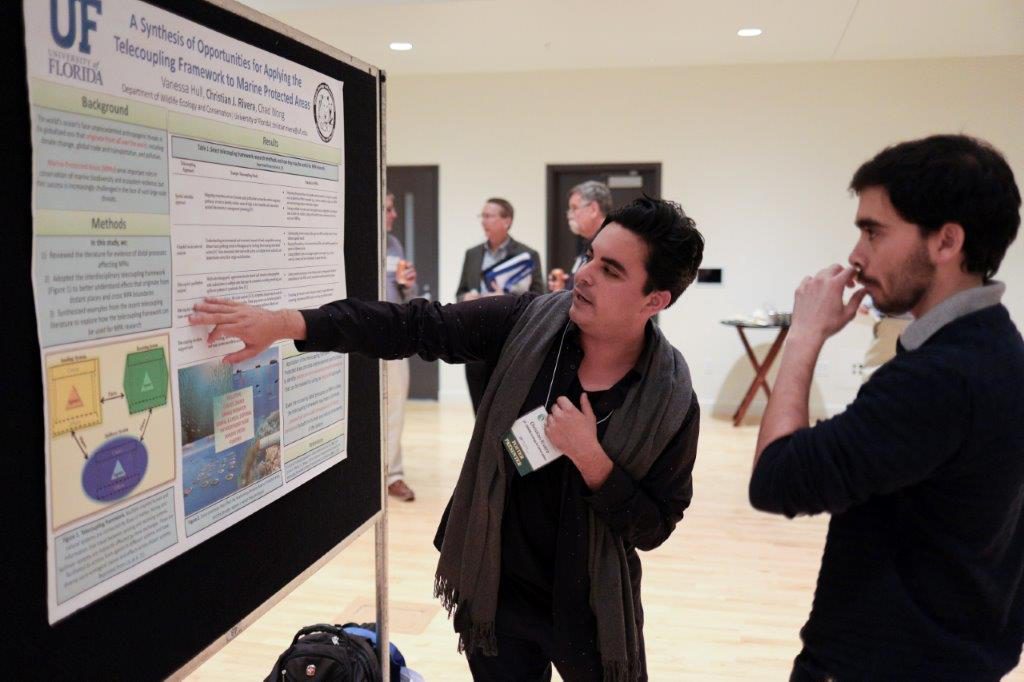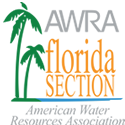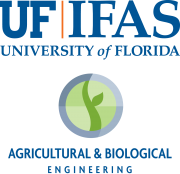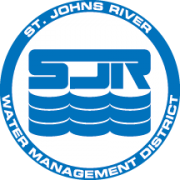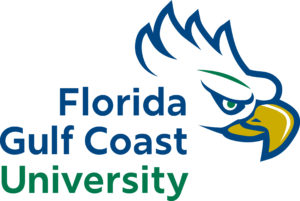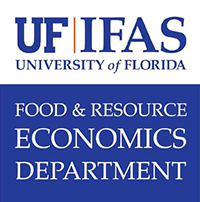
7th UF Water Institute Symposium
The University of Florida Water Institute and Duke Energy partnered to host the 7th biennial UF Water Institute Symposium. The Symposium brought together individuals from a broad range of disciplines and organizations to explore complex water challenges from multiple perspectives. Over 500 participants came to the University of Florida campus to understand and share research on innovative science, technology, cultural, policy, and management solutions. Keynote presentations were provided by Dr. Bryan Brooks, Director of the Environmental Health Science Program at Baylor University (click here for presentation) and Dr. Hans Pearl, Distinguished Kenan Professor of Marine and Environmental Sciences, UNC-Chapel Hill Institute of Marine Sciences (click here for video). Over 240 contributed oral and poster presentations provided insight to new research, technologies, and possible solutions to Florida’s water issues. Oral presentations, panel discussions, and poster presentations addressed the following themes:
Harmful algae blooms in springs, lakes, and coastal waters
Harmful algae blooms (HABs) involve proliferation of nuisance photosynthetic organisms (cyanobacteria [blue-greens], dinoflagellates [red tides], and diatoms) in fresh and salt waters. Such blooms negatively impact humans and other organisms. They may reduce light penetration in the water column, cause hypoxic or anoxic conditions when blooms die and decompose, and produce toxins. Factors that promote HABs include excessive nutrient loading (nitrogen and phosphorus) to waterbodies, higher water temperatures from climate warming or industrial discharges, and longer water residence times. Harmful algae blooms appear to be increasing in intensity and frequency world-wide and pose threats to wildlife, livestock, and humans. This theme solicits presentations that explore causes and consequences of HABs, as well as strategies to reduce the probability of their future occurrence.
Sources, impacts, and management of contaminants
Water resources are impacted by many contaminants, including nutrients, pharmaceuticals, agricultural pesticides, poly- and perfluorinated substances (PFAS), microorganisms, and metals. The impacts and sources of these contaminants in waters vary depending on location, surrounding land use and development practices and can have profound effects on water quality, water use, economy, and quality of life. Such contamination may, in turn, impact the economy and development patterns of the watershed. Addressing the sources of these contaminants, their environmental and economic impacts, and how to control the spread of contamination in our environment is a high priority. This theme solicits presentations that examine the contaminants that affect water quality and explore ways to reduce contamination in the environment.
Water scarcity, allocation, and use
Water scarcity, which occurs when the demand for water by all sectors, including the environment, cannot be satisfied due to constraints on water quantity or quality, is one of the greatest challenges facing humanity. Water is not only the lifeblood of natural ecosystems, but it is essential for agriculture, human consumption, industry, and energy generation. Water scarcity will become more pressing as the world’s human population continues to grow, living standards increase, diets change, water needs for ecosystems change, and the effects of climate change intensify. This theme solicits contributions that present current research related to drivers and impacts of water scarcity, and the opportunities to implement new practices, ground-breaking technologies, and innovative policies that can mitigate the impacts of water scarcity on the ecological and economic health of a region. Contributions from all fields of research are welcome on topics ranging from supply, recycling technologies, water management and demand reduction.
Impacts of and resilience to climate change, extreme events, and sea level rise
Global atmospheric, climatic and oceanic cycles, including the El Niño Southern Oscillation, North Atlantic Oscillation, and Atlantic Multi-decadal Oscillation, are important drivers of variations in rainfall patterns, changes in drought and flood cycles, and changes in terrestrial freshwater availability. Over longer time scales, climate change is likely to alter freshwater availability as a consequence of changes in precipitation, temperature, and sea level rise. Water management and decision-making in this changing regime require new scientific information that is regionally specific, evidence-based, and policy-relevant. This theme solicits presentations that include innovative methods for evaluating potential impacts of climate change, climate variability, and sea level rise on human and natural water-dependent systems, as well as policy, management, community engagement, and regulatory programs that may promote the resilience of these systems in a changing environment.
The Symposium’s final plenary session, entitled Navigating Turbulent Waters: Politics, Policies, and Partnerships, provided a venue for leading scientists, engineers, managers, and policy makers to discuss perceptions of Florida’s waters that span a broad spectrum: from the abundant to the scarce, the pristine to the polluted, the equitably shared to the improperly exploited, the eternally inviting to the newly foreboding. Moderated by Dr. Les Thiele, Professor of Political Science and Director, UF Center for Adaptive Innovation, Resilience, Ethics and Science (UF CAIRES), the panel discussed barriers to cooperation among stakeholders, as well as ways to overcome those barriers. Video of the Final Plenary Session is available at this link.
The links below may be used to view specific portions of the plenary sessions:
- Welcome and Opening remarks by:
- (0:00-3:29) Dr. Wendy Graham, Director, University of Florida Water Institute
- (3:30-6:13) W. Kent Fuchs, University of Florida President
- (1:33-16:19) Dr. Jack Payne, Senior Vice President for Agriculture and Natural Resources, University of Florida
- (PDF) Keynote presentation by Dr. Bryan Brooks, Director, Environmental Health Science Program at Baylor University
- (16:20-1:20:27) Keynote presentation by Dr. Hans Pearl, Distinguished Kenan Professor of Marine and Environmental Sciences, UNC-Chapel Hill Institute of Marine Sciences
- (0:00-1:46:09) Navigating Turbulent Waters: Politics, Policies, and Partnerships Panel
For details on the 7th UF Water Institute Symposium program, presentations and participants, please see the links below:
- Program (PDF) – View the 2020 Water Institute Symposium Program
- Oral Presentations and Abstracts – View available abstracts and presentations on the agenda
- Poster Abstracts – View all poster abstracts
- Poster Session Awards – View the Student Award Winning posters!
- Photo Gallery
- Water Resources Journalism Intensive (WRJI) Stories – View stories from aspiring science writers from the Symposium
- Book of Abstracts (PDF) – View all abstracts
- The Symposium in the News –
- Sharing the Story of Florida’s Water – Dr. Bruce MacFadden, Director, UF Thompson Earth Systems Institute
- What’s Growing On: Harmful Algal Blooms – AJ Willy, WUFT
- UF Water Institute Symposium Addresses Complex Issues – Ashley Robinson, VSCNEWS
We gratefully acknowledge our Sponsors:
Founding Sponsor
Silver Sponsors
Bronze Sponsors



